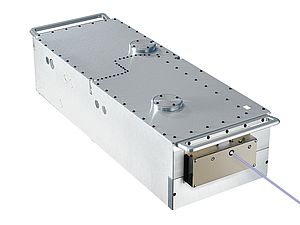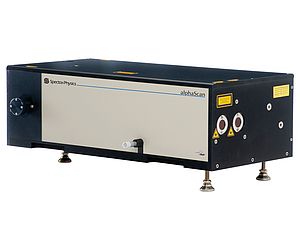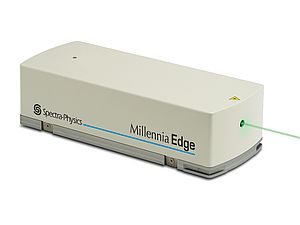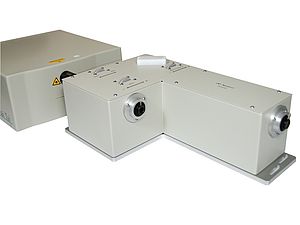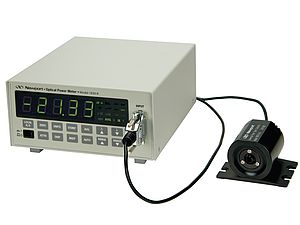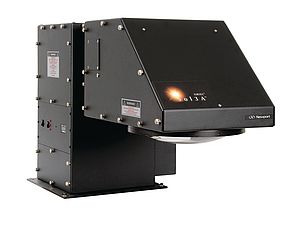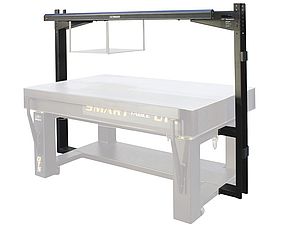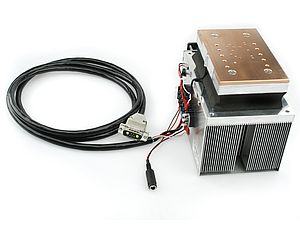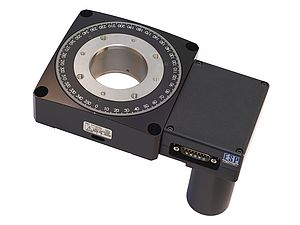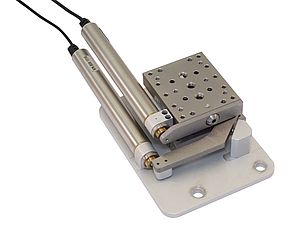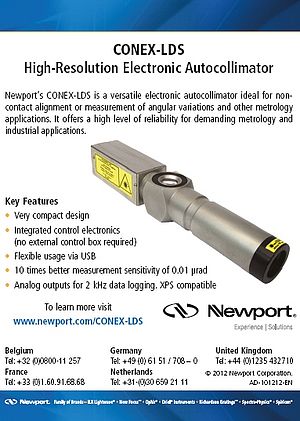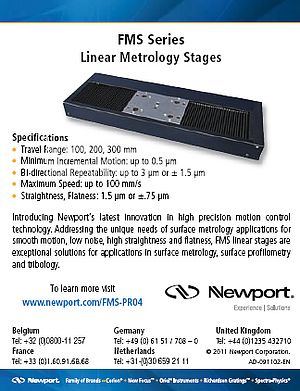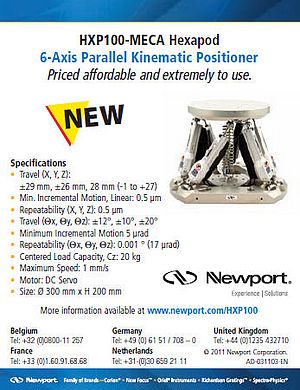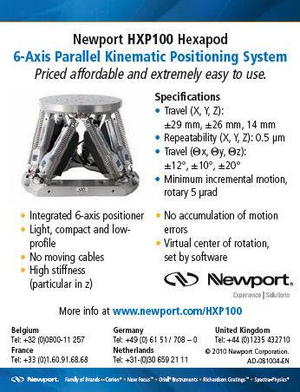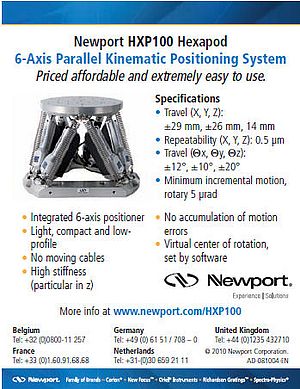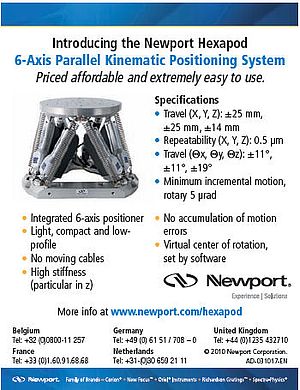Newport Corporation introduces the Series 819C/D high power silicon-based integrating sphere detectors which operate in the ultraviolet (UV- down to 200 nm) and can handle up to 10 watts of optical power. The new CAL2 models feature a built-in temperature sensor and OD1 attenuator sensor. When connected to the supplier's power meter models 1830-R, 1918-R, 1936-R, or 2936-R, they automatically recognize the attenuator On/Off position and the detector head temperature. Calibrated and traceable to NIST standards, the products operate in wavelengths ranging from the UV region through the visible to the near-infrared (NIR) at 1650 nm. The detectors offer superior and accurate measurements with the market's smallest calibration uncertainty specifications. Available for both diverging (model 819C) and collimated (model 819D) input beams, the line extension to UV and higher-power features make this series an essential tool for critical optical power measurement applications. There are three sensor materials used in the new integrating spheres series. They include silicon (Si), for detection between 400 - 1100 nm; UV-enhanced Si, optimized for 200 - 400 nm (but calibrated up to 1100 nm); and indium gallium arsenide (InGaAs) which operates in the 800 - 1650 nm wavelength range. Available sphere sizes range from 2-in. to 5.3-in. spheres. For added functionality, all spheres come with an SMA fiber optic connector on the north pole as a standard feature. This permits a small amount of light pickoff for wavelength measurement or any further analysis, without affecting the overall system calibration.
Integrating Sphere Detectors
Can handle up to 10 watts of optical power
- by Micro-Controle Spectra-Physics (Newport Spectra -Physics)
- September 17, 2012
- 593 views






